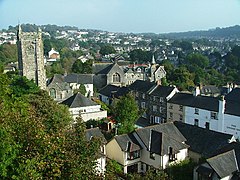Are you ready to unlock the mesmerizing power of your hips through belly dance?
Imagine yourself swaying gracefully, like a shimmering goddess, as the music fills the air. Welcome to the captivating world of belly dancing classes! In these enchanting sessions, you will embark on a journey that celebrates femininity, self-expression, and body confidence. The rhythmic movements of belly dance not only tone your core muscles but also unleash your inner sensuality.
During belly dance lessons, you will learn an array of techniques including shimmies, undulations, and isolations that will enhance your coordination and flexibility. Expert instructors will guide you through each step with patience and precision. As you delve deeper into this ancient art form, you’ll discover various styles of belly dance such as Egyptian, Turkish, and Tribal Fusion. Whether you’re drawn to traditional elegance or modern fusion moves, there’s a style that perfectly suits your unique personality.
So put on something comfortable yet alluring – perhaps a flowy skirt or hip scarf – and get ready to immerse yourself in the magic of belly dancing classes. Let loose, embrace your femininity, and ignite a fire within that will keep burning long after the music stops. Join us for an unforgettable experience!
About Langage
| Plympton | |
|---|---|

Looking down on part of the town from the castle
|
|

Plympton
Location within Devon
|
|
| Population | 29,899 (2011 Census) |
| OS grid reference | SX542561 |
| Shire county |
|
| Region |
|
| Country | England |
| Sovereign state | United Kingdom |
| Post town | PLYMOUTH |
| Postcode district | PL7 |
| Dialling code | 01752 |
| Police | Devon and Cornwall |
| Fire | Devon and Somerset |
| Ambulance | South Western |
| UK Parliament |
|
50°23′10″N 4°03′04″W / 50.386°N 4.051°W / 50.386; -4.051 |
|
Plympton is a suburb of the city of Plymouth in Devon, England. It is in lineage an ancient stannary town. It was an important trading middle for locally mined tin, and a seaport past the River Plym silted in the works and trade moved all along river to Plymouth and was the chair of Plympton Priory the most significant local landholder for many centuries.
Plympton is an concentration of several villages, including St Mary’s, St Maurice, Colebrook, Woodford, Newnham, Langage and Chaddlewood.
Toponymy
Although the declare of the town appears to be derived from its location upon the River Plym (compare, for instance, Otterton or Yealmpton), this is not considered to be the case. As J. Brooking Rowe biting out in 1906, the town is not and never was sited upon the river – rather it is sited upon the ancient trackway called ‘the Ridgeway’ from Dartmoor. The earliest enduring documentary mention to the place is as Plymentun in Anglo-Saxon charter S380 archaic to regarding 900 AD, and this publicize may be derived from the Old English adjective plymen, meaning “growing afterward plum-trees”. So Plympton would have the meaning “Plum-tree farm”. Alternatively, Cornish derivations next give ploumenn meaning ‘plum’ and plo(b)m meaning ‘lead’ – possibly associated to Latin plombum album ( ‘British lead’) or tin. The local civic association, however, suggests an unsupported every second derivation from the Celtic Pen-lyn-dun (“fort at the head of a creek”).
By the in front 13th century, the River Plym was named from a back-formation from this publish and comprehensible Plymstock. This later led to the naming of the fishing port created at the river’s mouth (Plymouth, originally named Sutton) when the river estuary silted stirring too much for the monks to sail stirring river to Plympton any longer.

